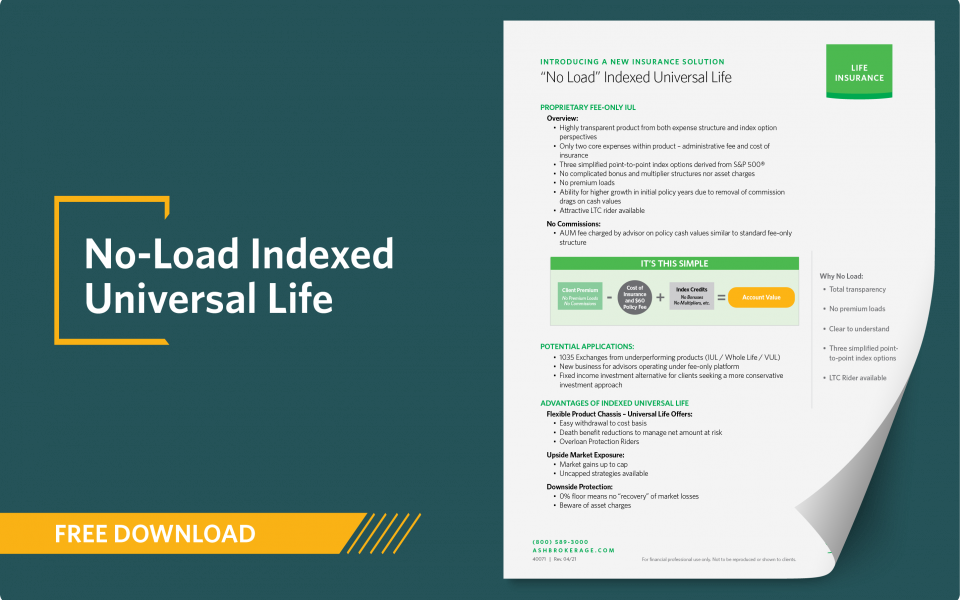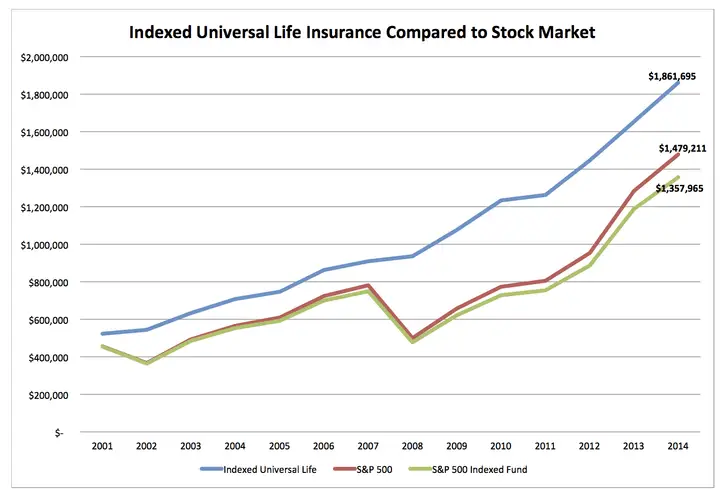All Categories
Featured
Table of Contents
Do they contrast the IUL to something like the Lead Overall Supply Market Fund Admiral Shares with no load, an expense proportion (ER) of 5 basis points, a turnover ratio of 4.3%, and an exceptional tax-efficient document of distributions? No, they contrast it to some horrible actively managed fund with an 8% load, a 2% EMERGENCY ROOM, an 80% turn over proportion, and a terrible record of temporary capital gain circulations.
Common funds usually make annual taxable circulations to fund proprietors, also when the worth of their fund has actually gone down in worth. Mutual funds not just call for revenue coverage (and the resulting annual tax) when the common fund is rising in value, but can additionally impose income tax obligations in a year when the fund has actually dropped in value.
That's not how shared funds work. You can tax-manage the fund, collecting losses and gains in order to decrease taxable distributions to the financiers, yet that isn't in some way mosting likely to alter the reported return of the fund. Only Bernie Madoff types can do that. IULs avoid myriad tax catches. The possession of common funds might call for the common fund proprietor to pay projected tax obligations.

IULs are simple to place so that, at the proprietor's fatality, the recipient is exempt to either earnings or inheritance tax. The same tax obligation decrease techniques do not function virtually too with mutual funds. There are many, often expensive, tax catches connected with the timed acquiring and marketing of mutual fund shares, traps that do not put on indexed life Insurance policy.
Possibilities aren't extremely high that you're going to undergo the AMT due to your mutual fund circulations if you aren't without them. The rest of this one is half-truths at finest. While it is true that there is no income tax due to your successors when they inherit the profits of your IUL plan, it is likewise true that there is no revenue tax obligation due to your successors when they inherit a shared fund in a taxable account from you.
Life Insurance Cost Index
The government estate tax exemption restriction mores than $10 Million for a couple, and expanding yearly with inflation. It's a non-issue for the huge majority of doctors, a lot less the rest of America. There are much better methods to prevent inheritance tax concerns than getting financial investments with low returns. Common funds may cause earnings taxation of Social Safety benefits.

The development within the IUL is tax-deferred and might be taken as tax obligation free revenue using lendings. The policy owner (vs. the mutual fund manager) is in control of his/her reportable earnings, hence allowing them to reduce and even eliminate the taxation of their Social Safety advantages. This is fantastic.
Here's one more very little concern. It's real if you acquire a shared fund for say $10 per share prior to the circulation day, and it disperses a $0.50 circulation, you are then mosting likely to owe tax obligations (most likely 7-10 cents per share) in spite of the fact that you have not yet had any type of gains.
However in the long run, it's truly about the after-tax return, not exactly how much you pay in tax obligations. You are mosting likely to pay more in tax obligations by utilizing a taxable account than if you acquire life insurance policy. You're also most likely going to have even more money after paying those taxes. The record-keeping needs for having common funds are considerably a lot more complex.
With an IUL, one's records are maintained by the insurance provider, copies of annual declarations are mailed to the owner, and distributions (if any) are completed and reported at year end. This one is likewise kind of silly. Of training course you should keep your tax obligation documents in instance of an audit.
Indexed Universal Life Insurance Versus Life Insurance Policy
Barely a factor to get life insurance policy. Common funds are generally component of a decedent's probated estate.
Additionally, they are subject to the hold-ups and costs of probate. The profits of the IUL policy, on the other hand, is constantly a non-probate distribution that passes beyond probate directly to one's named recipients, and is therefore not subject to one's posthumous financial institutions, unwanted public disclosure, or similar delays and prices.
We covered this set under # 7, but just to wrap up, if you have a taxed shared fund account, you have to place it in a revocable trust fund (or also much easier, utilize the Transfer on Fatality classification) to avoid probate. Medicaid incompetency and life time revenue. An IUL can supply their owners with a stream of earnings for their whole life time, no matter how much time they live.

This is helpful when organizing one's affairs, and converting assets to earnings before a retirement home arrest. Mutual funds can not be transformed in a similar way, and are usually taken into consideration countable Medicaid possessions. This is another stupid one advocating that poor people (you know, the ones that require Medicaid, a government program for the poor, to pay for their assisted living home) ought to make use of IUL rather than shared funds.
What Is Universal Life Insurance With Living Benefits
And life insurance policy looks terrible when contrasted fairly against a pension. Second, people who have money to purchase IUL over and beyond their retirement accounts are going to need to be awful at managing money in order to ever get approved for Medicaid to pay for their assisted living home expenses.
Chronic and terminal illness motorcyclist. All policies will allow a proprietor's very easy access to cash from their plan, frequently forgoing any type of surrender fines when such people endure a severe health problem, require at-home care, or come to be confined to an assisted living facility. Shared funds do not give a comparable waiver when contingent deferred sales costs still apply to a mutual fund account whose proprietor requires to offer some shares to money the expenses of such a remain.
Best Iul Companies 2021
You get to pay even more for that advantage (motorcyclist) with an insurance plan. Indexed global life insurance policy supplies death benefits to the beneficiaries of the IUL proprietors, and neither the proprietor nor the recipient can ever lose money due to a down market.
Currently, ask yourself, do you in fact require or want a survivor benefit? I absolutely do not need one after I get to economic independence. Do I want one? I suppose if it were economical sufficient. Certainly, it isn't economical. Generally, a purchaser of life insurance coverage spends for the true expense of the life insurance policy benefit, plus the prices of the policy, plus the profits of the insurance policy business.
Veterans Universal Life Insurance
I'm not entirely certain why Mr. Morais included the whole "you can't shed money" once more below as it was covered quite well in # 1. He simply wanted to duplicate the very best selling point for these things I mean. Again, you do not lose small dollars, yet you can lose genuine bucks, along with face major possibility cost because of low returns.

An indexed global life insurance policy policy proprietor may trade their policy for a totally different policy without setting off revenue tax obligations. A mutual fund owner can not move funds from one shared fund firm to one more without marketing his shares at the previous (therefore triggering a taxable event), and redeeming new shares at the last, commonly based on sales costs at both.
While it holds true that you can trade one insurance policy for one more, the reason that individuals do this is that the very first one is such a horrible plan that also after buying a brand-new one and going with the very early, negative return years, you'll still appear ahead. If they were offered the best policy the very first time, they shouldn't have any kind of wish to ever before exchange it and go through the early, adverse return years once more.
Latest Posts
Indexed Universal Life Unleashed
Iul Investment Calculator
Index Universal Life Insurance Reviews